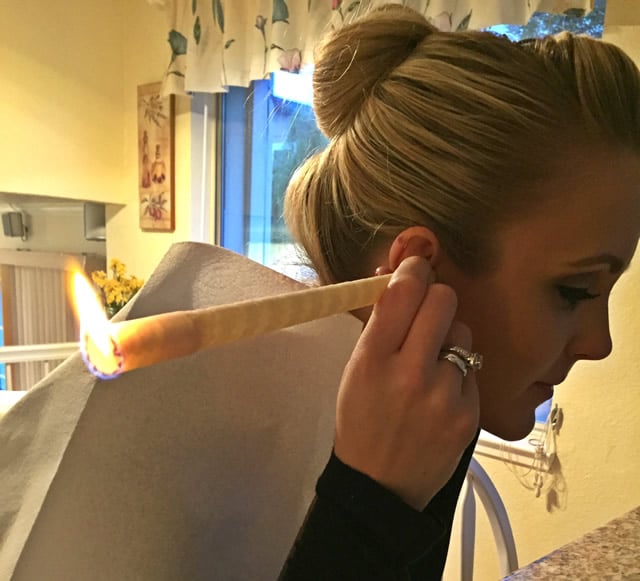
Ear Candling / Coning – the process of placing a smoke-channeling, cone-shaped device in the ear canal
- Fiction: This process creates a pressure vacuum that suctions out ear wax and other debris from the ear canal. It also has other benefits such as clearing eyesight, curing tinnitus, relieving sinus pressure, reducing stress and purifying blood.
- Fact: These claims are not medically supported and the practice can actually cause burns, blockage and perforated ear drums.
Sinus Rinses / Nasal Irrigation – the process of pouring or spraying water into the nostrils to clear sinus pressure and mucus
- Fiction: Tap water works perfectly well with a Neti® Pot or other nasal irrigation systems.
- Fact: Tap or other unsanitized water can cause infection when introduced to the sinuses. Only use distilled or boiled water for these purposes and make sure to mix the salt solution packet with the specified amount of water so it soothes the nasal linings.
Naturopathic Cough Suppressants – any alternative option that is not medicated
- Fiction: There is no risk to starting a naturopathic cough remedy found in an alternative or homeopathic wellness store.
- Fact: Even though naturopathic remedies do not contain medicines, they can still interact with other medications and health conditions you may have. Consult a physician before starting any new regimen.
Earache drops – usually made of citric acid, water, sodium and chamomile
- Fiction: Earache drops can help cure chronic ear pain or infections.
- Fact: While they are generally safe and are often an effective quick-fix for ear discomfort, earache drops cannot cure chronic conditions or an ear infection. Consult your doctor if your ear pain is continuous or not managed by drops.
Consult your doctor if you plan to start a new regimen or if your symptoms are not managed by DIY remedies or over-the-counter medications. Your physician can recommend the best medically-sound treatment plan for your symptoms.
